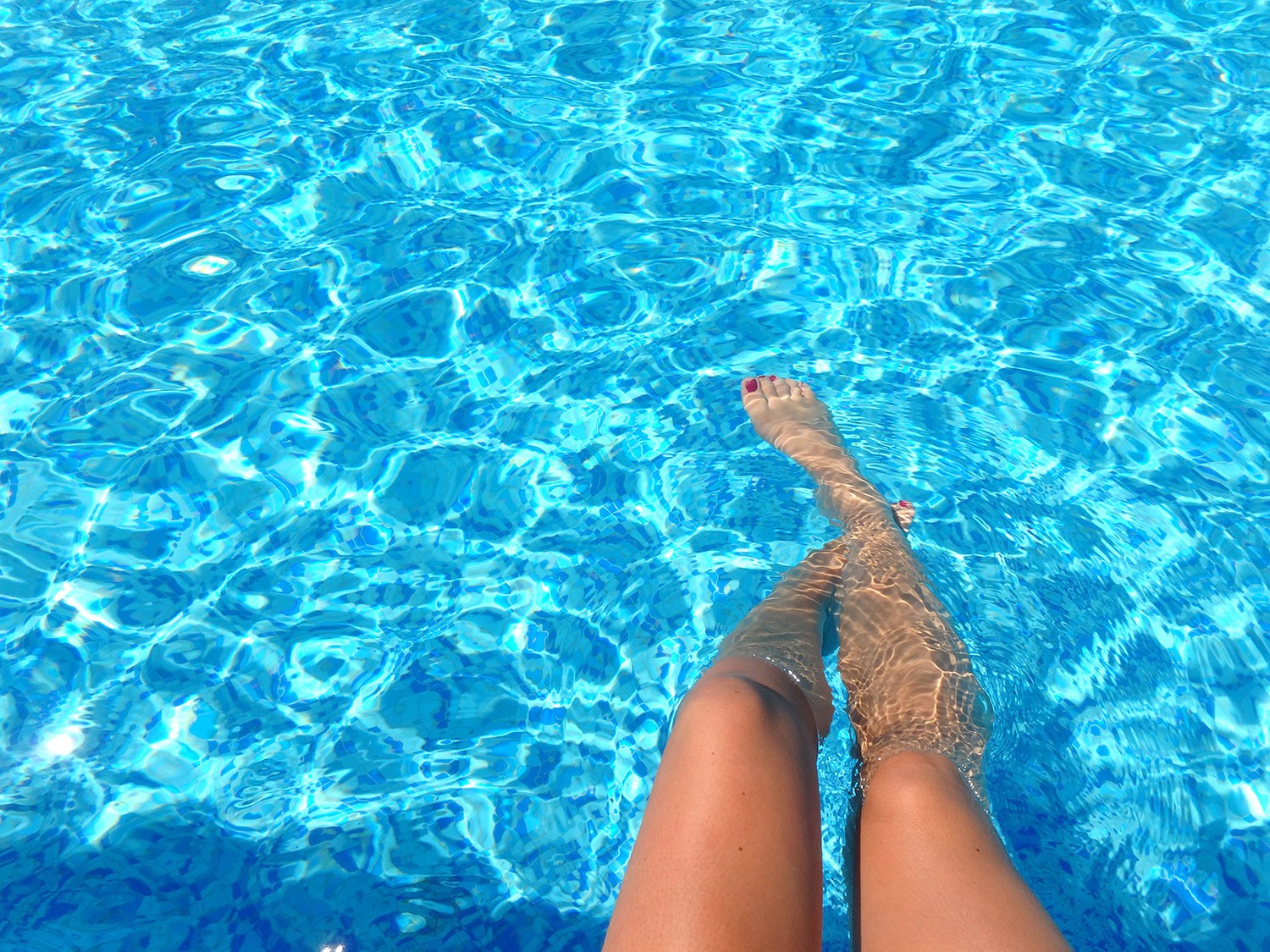Proper cleaning and maintenance of your backyard swimming pool begins with understanding your pool.
Story by Ann Butenas
Having a backyard pool is definitely about fun. There are those sun-filled days of summer with kids splashing in the water, adults lounging in the sun, and crystal-clear water just begging you to show off with a cannon ball or inviting you to play the timeless game of “Marco Polo.” However, in order to let the festivities continue throughout the season, it is important to properly clean and maintain your pool.
If you are one of the roughly 10.4 million residential backyard swimming pool owners, it’s good to have some basic information at hand. So, we spoke with Norm Whitted, owner of Aqua Blue Designs Inc., a local premier installer of fiberglass swimming pools and spas, who took us on a deeper dive into some of the basic knowledge every pool owner should have.
KCH&S: My pool has been covered all winter. What do I need to do to open my pool for the upcoming swim season?
Whitted: First of all, you should gently clean the pool cover before removing it, then let it dry before storing it over the summer. Take stock of any pool chemicals you have. Next, inspect all parts of your pool – the filter, pump, finish, and decking. Remove drain plugs and restore fittings. Adjust the water level to the middle of the skimmer and remove any debris. Then, turn on the pool filter and test the water. Once the water is clear and the chlorine levels are where they need to be, it is time to enjoy your pool.
KCH&S: What kind of basic equipment should I have as an owner of a pool?
Whitted: Pool maintenance doesn’t have to be difficult, but you do need some basic equipment in this regard. This includes shock to kill bacteria that accumulates in the pool; test strips so you know what chemicals you need to add to your pool; a skimmer, which allows you to scrap debris off the surface of the pool; a pool brush; a pool vacuum; and a pool cover. I might even add to the list a pool float. After you do the routine cleaning, you will want to cool off and relax!
KCH&S: Why is water chemistry important to understand?
Whitted: If you think you have to be a chemistry major to balance the water in your pool, you don’t. I know a lot of people get anxious about this aspect. While it is a vital part of pool maintenance and water care, the basics of pool chemistry are relatively simple. Start by understanding what is in your water and do some pool water testing before grabbing the chemicals. There are also professional pool cleaner services that can assist you with these tasks.
KCH&S: What are the basic components of a swimming pool?
Whitted: There are seven essential pool parts that make up the anatomy of a pool. These are aside from the equipment and accessories you will need to keep up with pool maintenance. The main pool parts are the skimmer, main drain, pump, filter, suction line(s), return lines, and return jets. Once you understand the purpose of each part, then you will have a better understanding of how your pool works, which will then help you with the cleaning and maintenance work.
KCH&S: What if I just don’t have the time or interest in doing all of this?
Whitted: Fortunately, there are several pool cleaning/maintenance companies in the area who can do all of this work for you. Some people are just more comfortable leaving these matters to the professionals. They can identify problems, inspect the pool, and keep it operating at an optimum level on a regular basis. That way, you have more time to do what you really want to do: enjoy time with family and friends in your backyard pool!
For more information on pool water chemistry and devices that help keep water safe, please see hayward-pool.com/shop/en/pools/res-in-ground/sanitization-info.
For more information on fiberglass pools, please see lovethepool.com/vendors.







